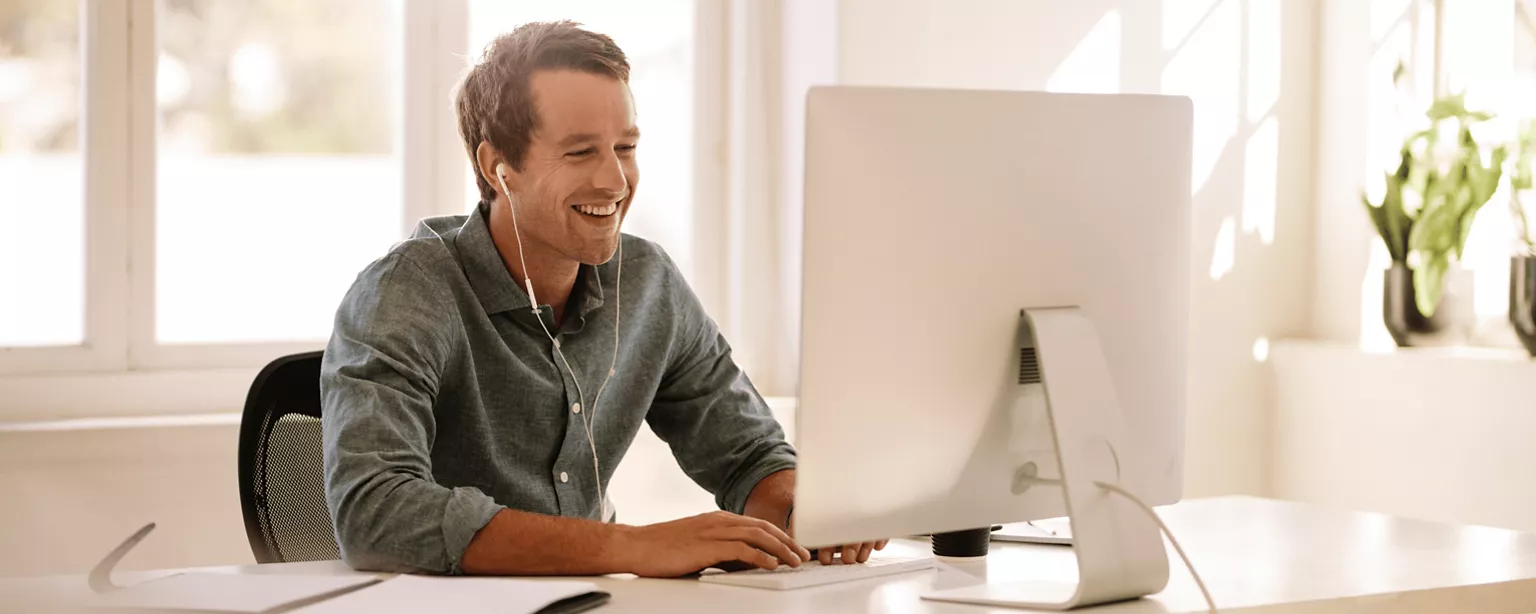Could a follow-up email help you secure your dream role? It definitely couldn't hurt! With the right timing and a few well-chosen words, you can keep your application front of mind and make a positive impression on your interviewer. Our recruitment experts give tips on how to send a follow-up email after an interview, including what to write and when to send.
Why an interview follow-up could work in your favour
There are two kinds of follow up email you can use as part of the interview process:
1. A post-interview thank you note
2. A follow-up email to chase the status of an ongoing application
Follow-up emails (especially the thank you note) can serve three purposes in the hiring process. Firstly, they demonstrate proactivity and professionalism. Secondly, they allow you to reaffirm your passion and suitability for the role. Finally, a follow-up email could make you more memorable.
However, timing is critical when sending follow-up emails. Both email types have different timelines; you'll need to stick to them if you want to strike while the iron’s hot!
How long after an interview should you follow up?
Where it’s always good practice to send a thank you note after your job interview, we only recommend sending an interview chaser if the deadline for hearing back has come and gone.
When to send your post-interview thank you note
The best time to send your post-interview thank you note is 24 hours after your interview or the next business day (assuming you interviewed on a Friday). Anything sooner could look over-eager, and anything later risks looking like an afterthought. If you're worried about forgetting, you can draft the email directly after your interview and schedule it to send at your chosen time.
Read more: How to prepare for a job interview
When to send your interview chaser email
The best way to know when to send an interview chaser is to ask about the hiring timeline during your interview. We recommend adding it as the last item on your list of questions for your potential employer.
The date they give will provide a solid timeline for when it's appropriate to reach out. We recommend letting the deadline pass before sending your follow-up — any time between two days and one week after the expected deadline passes.
You can set a reminder on your phone or add a note to your calendar, so you don't forget; this is especially helpful if you're interviewing with several companies. Remember to note the interview date, role, and company name in your reminder!
Read more: What not to wear to an interview: show personality with professionalism
How to write a follow-up email after an interview
A good follow-up email should be short and tailored to the recipient. Send your email directly to the hiring manager (or the person who interviewed you) and address them by name.
Try to include specific details from your interview, including the date and the role, plus a reference to one or two of the items you discussed. We also recommend finishing the email with a positive statement that invites a reply.
Post-interview thank you note example:
Dear [hiring manager's name],
Thanks for inviting me to interview with you yesterday for the [position] role. I enjoyed hearing about [company name] and [specific detail about an ongoing project or initiative]. I'm excited about possibly contributing my experience in [areas of expertise] to help achieve those goals.
Our conversation has reaffirmed my belief that I can thrive in this role. I hope we'll have the chance to work together, and I look forward to hearing back from you soon.
Kind regards,
[Your Name]
Has your deadline passed without a note from the hiring manager? Now is the time to think about drafting and sending an interview chaser. It should also be short and tailored while reminding the recipient of the date you interviewed and the role you interviewed for.
Like the thank you email, the interview chaser should demonstrate passion for the role and reaffirm your suitability for it. We also recommend signing off with an offer of additional information (just in case!) and a pleasant sentiment that stops the email from seeming over-keen.
Interview chaser example:
Dear [hiring manager's name],
I wanted to thank you again for taking the time to interview me on [date] for the [position] role. I was hoping to get an update on the status of my application.
Getting the opportunity to learn more about the projects the team is working on—especially the upcoming launch of the new customer portal—left me feeling even more excited about potentially joining your team.
Please let me know if I can provide additional information to help with your hiring decision. I'm very interested in the position and look forward to hearing about the next steps. Thanks again for your time and consideration.
Best regards,
[Your name]
Sending follow-up emails may sometimes feel like extra admin on top of the stress of interviewing for a new role, but they can make a difference where your professional image is concerned. Taking the time to write and send emails like these can help you feel confident you’ve given 100 per cent to the process — and that’s all anyone could ask!
Visit the Robert Half blog for more tips on job interview preparation, including how to answer common questions and how to dress for success. Are you ready to find your next career opportunity? Upload your CV to the Robert Half website or browse open roles today.







